
A post-hoc analysis of patients from the CHAMPION-NMOSD trial revealed that the majority received their initial meningococcal vaccination within 6-months of their last rituximab dose.

A post-hoc analysis of patients from the CHAMPION-NMOSD trial revealed that the majority received their initial meningococcal vaccination within 6-months of their last rituximab dose.

Lecanemab, a monoclonal antibody directed against aggregated soluble and insoluble forms of amyloid-ß, remains under review, with a decision expected in the coming months.
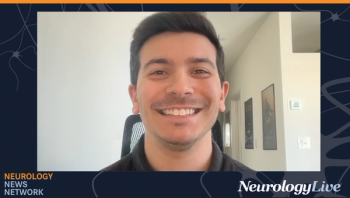
Neurology News Network. for the week ending March 8, 2025. [WATCH TIME: 3 minutes]

Take 5 minutes to catch up on NeurologyLive®'s highlights from the week ending March 7, 2025.
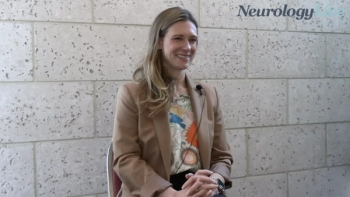
The professor of neurosurgery and physiology at University of Colorado School of Medicine talked about how vagus nerve stimulation may promote remyelination and functional recovery in multiple sclerosis. [WATCH TIME: 4 minutes]

BXCL501, an orally dissolving dexmedetomidine film, showed positive results in reducing agitation symptoms in patients with Alzheimer disease during the phase 3 TRANQUILITY trial.
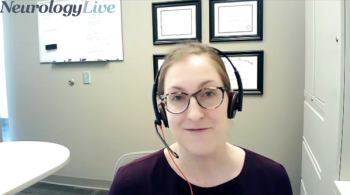
The child neurologist and neuroimmunologist at Nationwide Children’s Hospital provided clinical insight on the complexities of treating pediatric MOGAD, including treatment options, decision-making factors, and emerging therapies. [WATCH TIME: 4 minutes]

Mind Moments®, a podcast from NeurologyLive®, brings you an exclusive interview with Sonal Bhatia, MD, FACNS. [LISTEN TIME: 24 minutes]

A late-breaking study presented at the 2025 ACTRIMS Forum reported that a modified Atkins diet reduced inflammation and altered immune cell metabolism in multiple sclerosis.
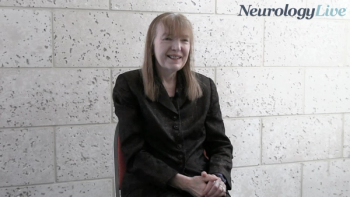
At the 2025 ACTRIMS Forum, the director of the MS Comprehensive Care Center at Stony Brook Medicine discussed the evolution of high-efficacy treatments for MS. [WATCH TIME: 4 minutes]

Based on the results of PROGRESS and the previous RELIEF-DPN-1 study, the 10 mg dose of pilavapadin was selected to move forward in clinical development for diabetic peripheral neuropathic pain.

The assistant professor in the neurology department at the University of Utah in Salt Lake City discussed advancing personalized medicine for patients with neuromyelitis optica spectrum disorder, a rare disorder of the central nervous system. [WATCH TIME: 4 minutes]

Data from more than 16,000 trial participants point to possible challenges with assessing and safely administering novel therapeutics among those with comorbidities—which may be present in as much as half of the patient population.

In the CAVS-MS study, 19% of participants with atypical or radiological-only presentations met the 2024 McDonald Criteria for MS, enabling earlier treatment initiation.

GFAP changes positively correlated with gadolinium-enhancing lesion volume (P = 0.18) and negatively with left ventricular volume (P = -0.19).

The vice president and senior global program lead for Hematology and Cell Therapy at BMS gave clinical commentary on encouraging phase 1 findings of CD19-XT in progressive and relapsing multiple sclerosis.

In both HERCULES and GEMINI trials, tolebrutinib reduced the risk of 6-month confirmed disability worsening, especially in participants with at least 4 baseline paramagnetic rim lesions.

With a scheduled PDUFA date of August 31, 2025, deramiocel looks to become the first marketed treatment for cardiomyopathy in DMD, one of the leading causes of death in this patient population.

Originally approved in 2007, eculizumab (Soliris; Alexion/AstraZeneca) is now available to treat both adult and pediatric patients with generalized myasthenia gravis, becoming the first available option for younger patients with the disease.
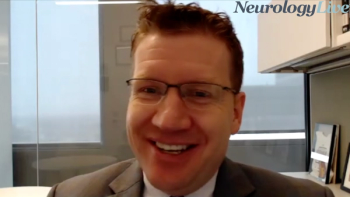
The pediatric neurologist at Children’s Hospital of Philadelphia gave perspective on some of the main issues the clinical community is figuring out with gene therapies and their integration to clinical practice. [WATCH TIME: 3 minutes]

Overall, treatment with the anti-tau monoclonal antibody resulted in no serious or severe adverse events, with additional results expected to be presented at an upcoming scientific conference.

Glatiramer acetate depot treatment showed stability in EDSS scores over 3 years, suggesting halted progression in patients with primary progressive MS.
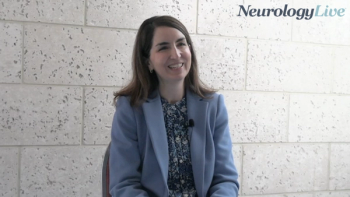
At the 2025 ACTRIMS Forum, the system chief of neuroimmunology and multiple sclerosis at OhioHealth discussed the need for better tools to detect MS progression. [WATCH TIME: 3 minutes]
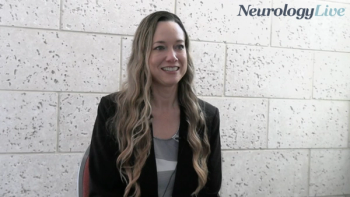
The director of the MS and Demyelinating Disease Center at Texas Tech University Health Sciences Center talked about early diagnosis, timely treatment, and minimizing therapy transition gaps to prevent severe disability in patients with NMOSD. [WATCH TIME: 4 minutes]

After 24 months after switching to cladribine, 100% of patients with relapsing MS remained free from T1 gadolinium-enhancing lesions, with no reported cases of PML or rebound disease activity.
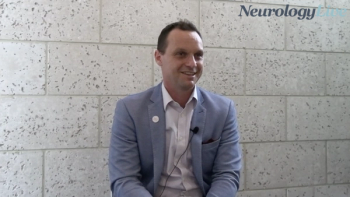
The assistant professor of neurology and neurosurgery at McGill University discussed the role of paramagnetic rim lesions as potential biomarkers of compartmentalized inflammation in MS. [WATCH TIME: 4 minutes]

The thrombolytic treatment, branded as TNKase and approved for adults, is administered as a 5-second IV bolus, upping the speed and simplicity of the 60-minute infusion of the previously approved alteplase (Activase; Genentech).

The founder and executive director of the Sumaira Foundation talked about how the landscape of NMOSD treatment has drastically improved with FDA-approved therapies, while noting that accessibility and awareness remain significant challenges. [WATCH TIME: 4 minutes]

Here's some of what is coming soon to NeurologyLive® this week.
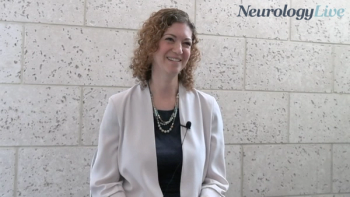
The assistant professor of medicine at the University of Toronto talked about emerging research on how prodromal symptoms may aid in the early identification of multiple sclerosis and neuromyelitis optica spectrum disorder. [WATCH TIME: 6 minutes]